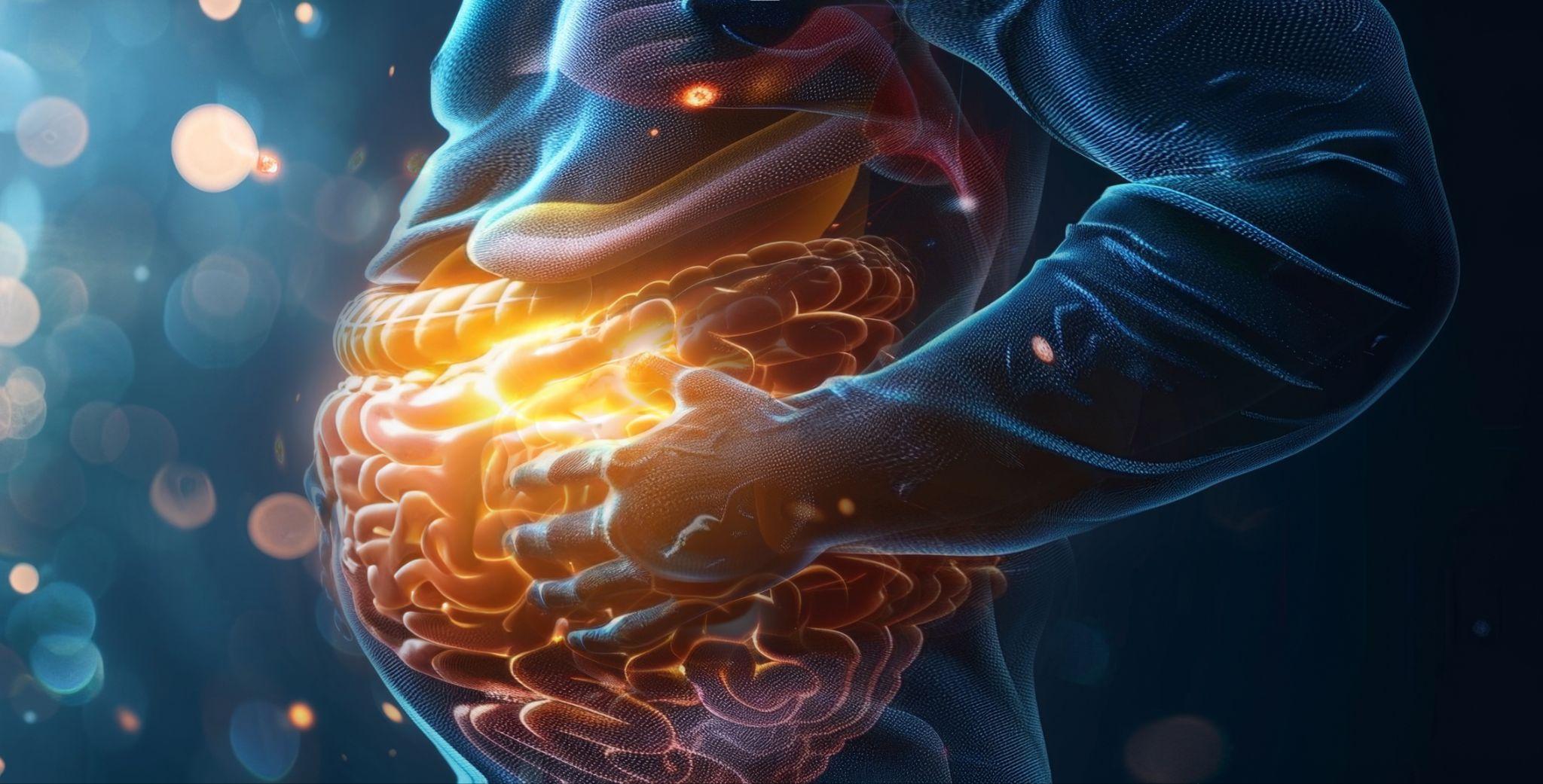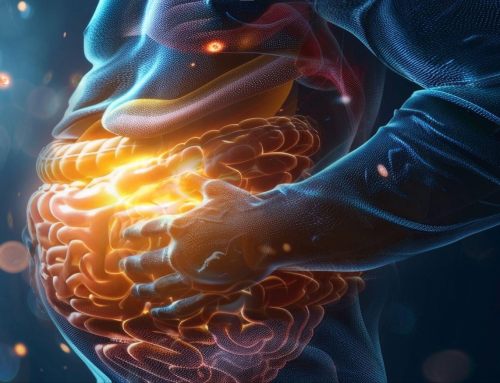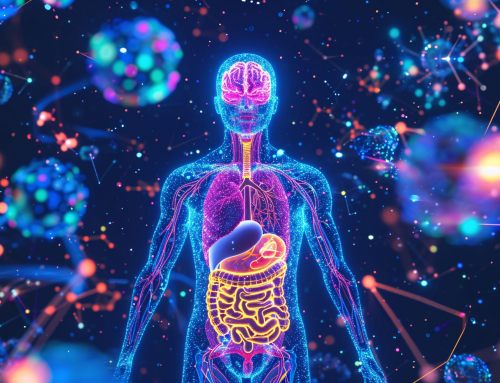How Does Chronic Stress Weaken the Endocrine System?
Modern day life is full of demanding stressors, with 77 % of Americans reporting that they regularly experience physical symptoms of stress and 73% experiencing psychological symptoms (1). While the body is equipped to handle small amounts of stress, prolonged and excessive amounts can have compromising effects. Chronic stress induces a number of systemic changes in the body, disrupting homeostatic functions over time. Endocrine function, in particular, is impeded by chronic stress weakening its efficiency.
The Stress Response
Stress is defined as a state of threatened balance in the body triggered by intrinsic and extrinsic factors—including emotional, psychological, and physical forms. The perceived threat or stressor is counteracted by a number of complex physiological responses in the body aiming to restore balance in the system (2).
The stress response describes an evolutionary, biological mechanism designed to keep us safe in the face of danger. When the body senses stress, this information is sent to the amygdala, a region of the brain responsible for emotional processing. If the amygdala perceives the stress as dangerous or a threat, it sends a signal to the hypothalamus, triggering the release of corticotropin-releasing hormone (CRH)/corticotropin-releasing factor (CRF). This stimulates the pituitary gland to secrete and release adrenocorticotropic hormone (ACTH) which travels down to the adrenal glands, activating secretion and release of glucocorticoids (cortisol) and catecholamines (norepinephrine and epinephrine) as well as other stress hormones into the bloodstream.
Heart rate and glucose levels increase, as the body responds to this rush of hormones, and blood and vital nutrients are directed to the muscles supporting the need to fight or flight. When the stressor or threat is gone, the body normalizes again, going back to balance. However, if the threat does not go away, the stress has nowhere to go and the stress response intensifies.
The production of these hormones is either activated or inhibited by messages sent from the hypothalamus to the pituitary gland. The delicate balance of these hormones is significant in regulating functions in the body.
The Relevance of Cortisol
Cortisol plays a significant role in various physiological processes in the body essential for modulating metabolism, brain function, and immunity. Prolonged elevations of cortisol levels, however, can have negative effects on these functions. Chronic stress places the body in a constant state of sympathetic nervous system (SNS) dominance or arousal.
Integral parts of the stress response include the adrenal glands of the hypothalamic-pituitary-adrenal (HPA) axis and the autonomic nervous system (ANS) which interact with other components of the nervous system to induce mobilizing responses in the body, preparing it to address the perceived stressor (2). Prolonged stress that doesn’t leave the body affects neuroendocrine functions, as the body has to adapt and compensate for excess cortisol production. Over time this results in dysregulation of the HPA axis and abnormal cortisol levels, compromising a number of integral bodily functions.
The Body’s Adaptation to Stress
Elevated and prolonged cortisol levels in the body from chronic stress result in the body becoming less sensitive to the signals that counteract this response, referred to as the negative feedback loop. As the HPA axis becomes dysregulated, the continued release of CRH and ACTH results in the adrenal glands overproducing stress hormones as the body adapts. Adrenal fatigue often occurs, weakening the endocrine system. Glucose levels surge and inflammation is induced in the system. Crosstalk occurs between the enteric, nervous, endocrine, and immune systems in influencing these processes.
Physiological biomarkers of stress demonstrated from a 2021 systematic review include alterations in cortisol, ACTH, BDNF, epinephrine, norepinephrine, glucose, HbA1c, triglycerides, prolactin, DHEA, CRP, and interleukin – 6 (IL-6) and 8 (IL-8), among others, further underscoring the effects of stress on the body (3).
Chronic stress has been linked to an increased risk of developing endocrine-related conditions, such as metabolic syndrome, diabetes, and cardiovascular disease as efficiency is weakened over time. Neuroinflammation is also linked with chronic stress in the central nervous system; all of which increases susceptibility to perpetuating the stress response.
The Impact of Prolonged Stress on the Endocrine System
No system in the body is immune to the effects of stress, and a coordinated response from all systems is essential to deal with stressors. Chronic stress, in particular, exerts multifaceted effects on the endocrine system, impeding the balance of hormone secretion and regulation. This becomes a problem as a dysregulated stress response compromises the body’s ability to bring the system back to homeostasis (4). Disruptions in cortisol modulation due to chronic stress have profound implications on the endocrine system, weakening its countless regulatory functions.
The neuroendocrine system has significant implications for the stress response, as well as maintaining balance in the body (5). A complex interrelationship exists between the central nervous system, immune system, and endocrine system during the chronic stress response (6). Psychoneuroimmunology (PNI) describes the connection between these systems. Our thoughts, beliefs, and emotions have a direct impact on these systems, further highlighting the role stress has in influencing our physiology.
Dysregulation of the HPA Axis
Chronic, prolonged stress disrupts the intricate balance of hormones through overactivation of the hypothalamic-pituitary-adrenal (HPA) axis—which is a significant component of the body’s stress response. Dysregulation of this axis results in excessive release of stress hormones, compromising the normal functioning of this system and the endocrine system. Endocrine efficiency is integral for synthesizing and modulating hormones responsible for various bodily functions—including metabolism, sexual function, mood, growth, and the stress response (7).
Excessive cortisol release over time diminishes receptor sensitivity, perpetuating the stress response. The effects of increased inflammation and oxidative stress further exacerbate imbalances and impede endocrine function. Stress-induced changes in neurotransmitter levels, including serotonin and dopamine, further disrupt hormone regulation, mood, and receptor sensitivity.
Excessive stress results in adrenal fatigue, as the body needs to produce more cortisol to keep up with the increased physiological demands of heightened stress. Prolonged activation of the HPA axis exhausts the adrenal glands, resulting in reduced production of cortisol and other essential regulatory hormones—all of which further exacerbate the effects of stress on the endocrine system—creating a vicious cycle of negative feedback mechanisms and dysfunction.
Induced Hormonal Changes from Chronic Stress
Continued and relentless stress weakens the endocrine system through several mechanisms. In response to stress, levels of various hormones fluctuate over time. Of note, changes in levels of glucocorticoids (cortisol), catecholamines (norepinephrine, epinephrine), and various subsequent regulatory hormones occur (7). Levels of stress hormones have been shown to increase 2-5 fold during the initial stress response and become suppressed over time (8, 9).
Cortisol – Elevated cortisol levels due to stimulation of the pituitary-adrenal axis are the body’s response to stress—notably the neuroendocrine system. Prolonged elevated levels of cortisol become downregulated over time (10). This can contribute to weight gain, insulin resistance, and immune suppression underscoring the role this hormone has in maintaining balance in the body.
Thyroid – Elevated levels of cortisol can interfere with the thyroid’s ability to work efficiently in its crucial role in regulating metabolism, among other functions. The thyroid and adrenal glands support modulation of hormone levels, as well as the body’s response to stress. Thyroid dysfunction can lead to fatigue, weight gain, and mood fluctuations, further increasing the effects of chronic stress. Levels of T3 and T4 often reduce with stress, as well as secretion of TSH from the effects of glucose on the nervous system (11).
Insulin & Glucose – Chronic stress has been associated with alterations in insulin sensitivity and resistance as it disrupts glucose metabolism. This can make individuals more susceptible to metabolic disorders (12).
Catecholamines – Activation of the pituitary-adrenal axis is associated with the release of catecholamines— including epinephrine and norepinephrine— leading to increased cardiac output and blood flow in the system (13).
Vasopressin – Stress results in the increased release of vasopressin from the paraventricular nucleus of the hypothalamus and corticotropin-releasing hormone (CRH). This stimulates the production of ACTH from the pituitary gland, heightening the effects of CRH and glucose secretion (14).
ACTH & DHEA – Continued suppression of ACTH leads to reductions in DHEA levels over time. ACTH is integral for modulating growth, metabolism, and reproduction via synthesis of other vital hormones. DHEA is also valuable as it can be converted into estrogen or testosterone.
Gonadotropins – When the body is chronically stressed, suppression of circulating gonadotropins and gonadal steroid hormones can occur, disrupting libido and sexual health (15). Prolonged exposure to chronic stress can also result in compromised reproductive function (16).
Growth hormone (GH) – Excessive stress can also decrease the secretion of GH, which is important for metabolic, growth, and cardiovascular functions (17).
Prolactin – Prolactin levels can also be altered by the impacts of chronic stress. These changes can affect the immune system or the body’s overall homeostasis (18).
Reproductive Hormones – Chronic stress may disrupt reproductive hormone levels, interfering with testosterone and estrogen production, leading to decreased libido, irregular menstrual cycles, erectile dysfunction, and compromised fertility.
Disruption of luteinizing hormone (LH) and follicle-stimulating hormone (FSH) can impair sperm quality and reproductive functions, affecting fertility (19). Prolonged exposure to stress can impede ovulation and the functioning of the reproductive system. Chronic stress disrupts the menstrual cycle by affecting the production and regulation of estrogen and progesterone (20). This may also increase the risk of developing conditions such as Polycystic Ovary Syndrome (PCOS).
PRACTICES FOR DISCHARGING STRESS
Mind-Body Modalities for Regulating Stress – Chronic stress poses a significant threat to endocrine function, impeding the intricate and complex interplay of hormones integral to modulating health and well-being. Therefore, modalities that encourage regulating stress from a somatic perspective may be valuable for supporting and negating stress.
Modalities such as yoga, exercise, deep breathing, and meditation are noteworthy for reducing stress. This is because, while the brain sends signals to the body relative to stress, the body also communicates up to the brain. In fact, 80% of the body’s communication is bottom-up meaning that the body is always sending signals up to the brain relative to its physiological state (21).
Movement in particular is beneficial for stress as our fascia (network of connective tissues) has been shown to store stress (22). In animal studies shaking is a biological signal to the limbic system that the threat has passed, helping to shift the body out of the stress response (23).
Meditation supports the body and mind in conquering stress as it promotes neuroplasticity, creating new neural pathways and reducing the default mode network in the brain. Biofeedback is a way of gaining real-time insights into our level of stress from various biomarkers. This can provide an objective perspective on stress, supporting increased insights related to triggers as well as the efficiency of coping mechanisms. Biofeedback techniques have been shown to be beneficial as they can promote PNS dominance and improve HRV.
Nature, Circadian Rhythm, & Sleep – We evolved to coexist with nature. Obtaining sunlight in the morning and being connected with nature can support our stress response. This also supports circadian rhythm balance, helping to improve quality of sleep and other homeostatic functions, having profound effects on regulating stress.
Nutrition – The way we nourish our body can either support our stress response or hinder it. Steering away from highly processed and inflammatory foods, therefore, is a significant factor. Adhering to a balanced, nutrient-dense, whole foods diet rich in vitamins and nutrients supports our adrenals and overall endocrine health.
Acupuncture – This ancient healing practice has been shown to be supportive in dealing with stress as it stimulates the hypothalamus-pituitary-adrenal axis, reducing cortisol (24).
While stress is an inevitable part of life, being in a chronic state of stress can impede the body’s functions, notably, the efficiency of the endocrine system by inducing negative feedback mechanisms. Being mindful of how we take care of ourselves—body and mind–can support us in reducing its negative impact.
Uncover the multifaceted effects of stress on endocrine function and how to unravel the complexities of this intricate system in supporting the body with emerging functional medicine protocols. This free virtual event will occur on May 21st, from 5-7 pm PST. Expert speakers include Jeff Bland, PhD, Michael Chapman, ND, and Dr. Christian Jenski.
References:
- American Psychological Association, Stress in America. 2020..
- Tsigos C, Kyrou I, Kassi E, et al. Stress: Endocrine Physiology and Pathophysiology. (Updated 2020 Oct. 17). In: Feingold KR, Anawalt B, Blackman MR et al., editors.
- Noushad S, Ahmed S, Ansari B, Mustafa UH, Saleem Y, Hazrat H. Physiological biomarkers of chronic stress: A systematic review. Int J Health Sci (Qassim). 2021 Sep-Oct;15(5):46-59. PMID: 34548863; PMCID: PMC8434839.
- Vuppaladhadiam L, Ehsan C, Akkati M, Bhargava A. Corticotropin-Releasing Factor Family: A Stress Hormone-Receptor System’s Emerging Role in Mediating Sex-Specific Signaling. Cells. 2020 Mar 31;9(4):839. doi: 10.3390/cells9040839. PMID: 32244319; PMCID: PMC7226788.
- Knezevic E, Nenic K, Milanovic V, Knezevic NN. The Role of Cortisol in Chronic Stress, Neurodegenerative Diseases, and Psychological Disorders. Cells. 2023 Nov 29;12(23):2726. doi: 10.3390/cells12232726. PMID: 38067154; PMCID: PMC10706127.
- Zefferino R, Di Gioia S, Conese M. Molecular links between endocrine, nervous and immune system during chronic stress. Brain Behav. 2021 Feb;11(2):e01960. doi: 10.1002/brb3.1960. Epub 2020 Dec 8. PMID: 33295155; PMCID: PMC7882157.
- Ranibar S., Reetu K. Stress & Hormones. Indian Journal of Endocrinology Metabolism. Jan; 15 (1): 18-22. DOI:10.4103/2230-8210.77573. PMID: 21584161; PMCID: PMC3079864.
- Herman JP, Figuerierdo H, Mueller NK, Ulrich-Lai Y, Ostrander MM, Choi DC, et al. Central mechanisms of stress integration: Hierarchical circuitry controlling hypothalamo-pituitary-adrenocortical responsiveness. Front Neuroendocrinol. 2003;24:151–80.
- Black PH. Central nervous system-immune system interactions: Psychoneuroendocrinology of stress and its immune consequences. Antimicrob Agents Chemother. 1994;38:1–6.
- Hargreaves KM. Neuroendocrine markers of stress. Anesth Prog. 1990;37:99–105.
- Halter JB, Beard JC, Porte D., Jr Islet functions and stress hyperglycemia: Plasma glucose and epinephrine interaction. Am J Physiol. 1984;247:E47–52.
- Helmreich DL, Parfitt DB, Lu XY, Akil H, Watson SJ. Relation between the hypothalamic-pituitary-thyroid (HPT) axis and the hypothalamic-pituitary-adrenal (HPA) axis during repeated stress. Neuroendocrinology. 2005;81(3):183-92. doi: 10.1159/000087001. Epub 2005 Jul 11.
- Goldstein D. Stress-induced activation of the sympathetic nervous system. Balliere’s Clin Endocr Metab. 1987;1:253–78.
- Aguilera G, Subburaju S, Young S, Chen J. The parvocellular vasopressinergic system and responsiveness of the hypothalamic pituitary adrenal axis during chronic stress. Prog Brain Res. 2008;170:29–39. [PMC free article] [PubMed] [Google Scholar]
- Cameron JL. Stress and behaviorally induced reproductive dysfunction in primates. Semin Reprod Endocrinol. 1997;15:37–45. [PubMed] [Google Scholar]
- Lachelin GC, Yen SS. Hypothalamic chronic anovulation. Am J Obstet Gynecol. 1978;130:825–31.
- Skuse D, Albanese A, Stanhope R, Gilmour J, Gilmour L, Voss L. A new stress-related syndrome of growth failure and hyperphagia in children, associated with reversibility of growth hormone insufficiency. 1996;348:353–8.
- Itoh N, Obata K, Yanaihara N, Okamoto H. Human preprovasoactive intestinal polypeptide contains a novel PHI-27-like peptide, PHM-27. 1983;304:547–9.
- Odetayo AF, Akhigbe RE, Bassey GE, Hamed MA, Olayaki LA. Impact of stress on male fertility: role of gonadotropin inhibitory hormone. Front Endocrinol (Lausanne). 2024 Jan 8;14:1329564. doi: 10.3389/fendo.2023.1329564. PMID: 38260147; PMCID: PMC10801237.
- Chu B, Marwaha K, Sanvictores T, et al. Physiology, Stress Reaction. [Updated 2022 Sep 12]. In: StatPearls [Internet]. Treasure Island (FL): StatPearls Publishing; 2024 Jan-.
- Malandrone F, Catrambone V, Carletto S, Rossini PG, Coletti Moja M, Oliva F, Pagani M, Valenza G, Ostacoli L. Restoring bottom-up communication in brain-heart interplay after trauma-focused psychotherapy in breast cancer patients with post-traumatic stress disorder. J Affect Disord. 2024 Apr 15;351:143-150. doi: 10.1016/j.jad.2024.01.172. Epub 2024 Jan 27.
- Barsotti N, Chiera M, Lanaro D, Fioranelli M. Impact of stress, immunity, and signals from endocrine and nervous system on fascia. Front Biosci (Elite Ed). 2021 Jan 1;13(1):1-36. doi: 10.2741/870. PMID: 33048774.
- Levine, P. (1997). Waking the Tiger, Healing Trauma.
- Liu C, Zheng S, Wu W, Wang X, Qin S, Zhao Y, Xi H, Wan Q. Effects of acupuncture on the hypothalamus-pituitary-adrenal axis in chronic insomnia patients: a study protocol for a randomized controlled trial. Trials. 2019 Dec 30;20(1):810. doi: 10.1186/s13063-019-3964-5. PMID: 31888738; PMCID:











